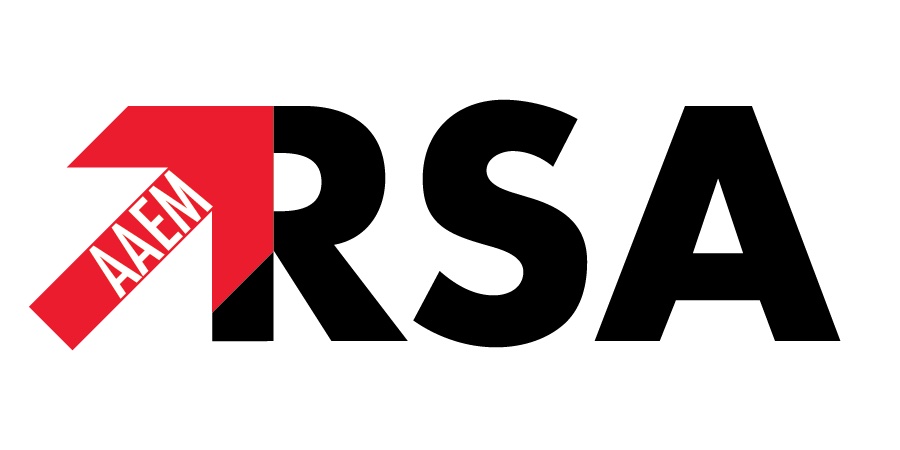Residency is coming to an end. Are you ready? Clinically, we know the answer is YES! As for navigating the job search, we can all use a little help from those who’ve been there.
Here is a timeline — including critical pearls and pitfalls — for securing your first job.
AAEM/RSA commends you for completing your residency in emergency medicine. Your role as a board-eligible, board-certified emergency physician fills a critical role for our patients and in our society. We encourage you to stay involved with AAEM as we continue our advocacy for you as an EM physician.
April/May
Leading into senior year – Who are you? What do you want?
- Update your curriculum vitae (CV).
- Include publications, lectures, awards and leadership roles. Highlight your strengths.
- Proofread for alignment, spelling and grammar. Faculty like to help!
- Prepare to account for any gap over one month on upcoming applications.
- Identify goals for your post-residency position.
- Consider academic, community, hybrid, rural, locum tenens or fellowship.
- Do you want residents? Teaching? Research? Trauma center? Stroke/Cardiac center? Pediatrics? Single coverage? Stability vs. flexibility? Malpractice climate?
- Consider geographic factors, including family, friends, climate and recreation.
- Find a listing of emergency medicine fellowships at www.saem.org (check deadlines!).
- Network. Attend the AAEM/RSA track at the AAEM Annual Scientific Assembly.
May/June
Leading into senior year – What’s out there?
- Continue to refine your goals.
- Research opportunities broadly.
- Talk to faculty and program alumni who may have worked/studied in your choice area.
- Identify a mentor, if possible, to guide your search.
- Attempt direct contact with a regionally-practicing physician. Take a look at the AAEM Job Bank.
- Learn about employment structures.
- Appreciate the difference between hospital employees, physician-owned private practices, contract management groups and independent contractors.
- Read up and educate yourself. Browse RSA resources on finding the right job, practice opportunities, and business of EM.
July/August
Prepare for action
- Finalize your CV. Draft cover letters and collect references.
- Remember to notify all references and request preferred contact information.
- Tailor the list of specific group practices to which you plan to apply.
- Gather contact information for the group recruiter and any specific department chairmen if you have a site preference.
- Gather contact information for the group recruiter and any specific department chairmen if you have a site preference.
September/October
Make your move
- Begin fellowship application process.
- Finalize your list of anticipated application targets.
- Learn as much as you can! Consider mentor input. Attend recruiting events.
- Be aware of head hunting and recruitment perks and pitfalls.
- Does this group truly staff regions/hospitals you desire? Have resources you desire?
- Are you applying adequately within a highly-competitive market like the west coast?
- Would you really want this job?
- Submit job applications (early).
- Appreciate the benefit of early application when applying in highly-competitive markets, with minimal flexibility (i.e., family/geographic restraints), or with particular determination to secure a very specific site.
- Remember that interviews will follow soon after CV submission, so be ready for them.
October/November
Pick the right match
- Submit job applications (standard).
- Interview!
- Be prepared to ask about specific sites, scheduling, flexibility, clinical practice environment, hospital contract stability, partnership tracks and reasons for attrition.
- Prepare your questions in advance.
- Review your contract.
- Review your own contract for scheduling, salary and bonus elements. Understand your malpractice coverage (who pays the tail?), non-compete clauses (where can you work locally if you leave?), restrictive covenants (are there unfair restrictions on your practice that are written into your contract?) and due process (can you be fired without notice?).
- Have a local attorney review your contract — in particular for any confusing language or missing references.
- Ask faculty for help; they are happy to assist you.
- Ask your mentors — and if none are present, feel free to contact us at AAEM/YPS and we will match you with someone from AAEM who can help.
- Sign your contract.
- Ask ahead for any contract deadlines. (Can be two weeks!).
- Notify any pending contracts that you have completed your job search.
- Celebrate! You did it!
Teresa Ross, MD, Past President
Edited by Stephanie Gardner, MD, Former AAEM/RSA Vice President; and Leana Wen, MD MSc, AAEM/RSA Past President
